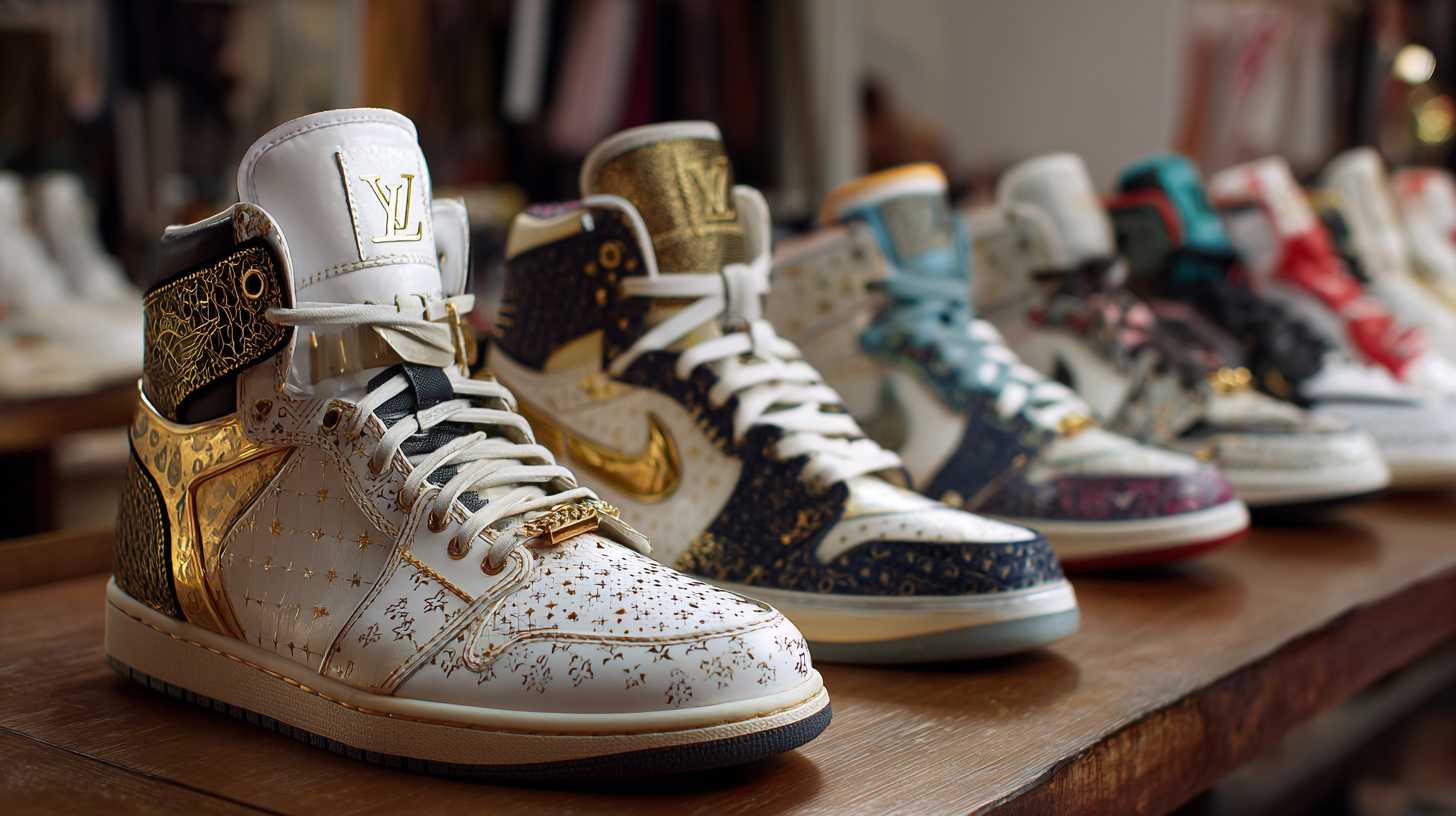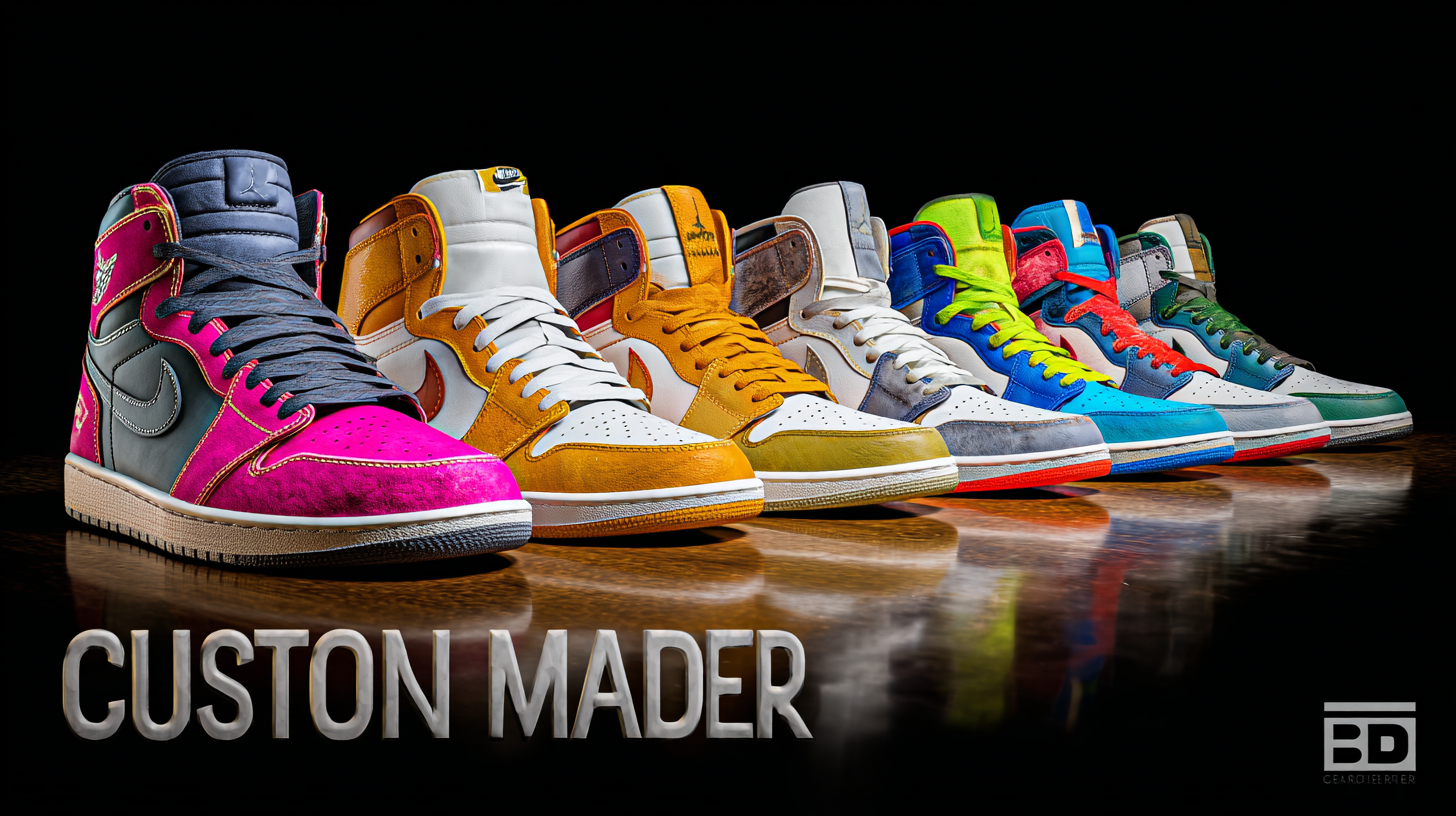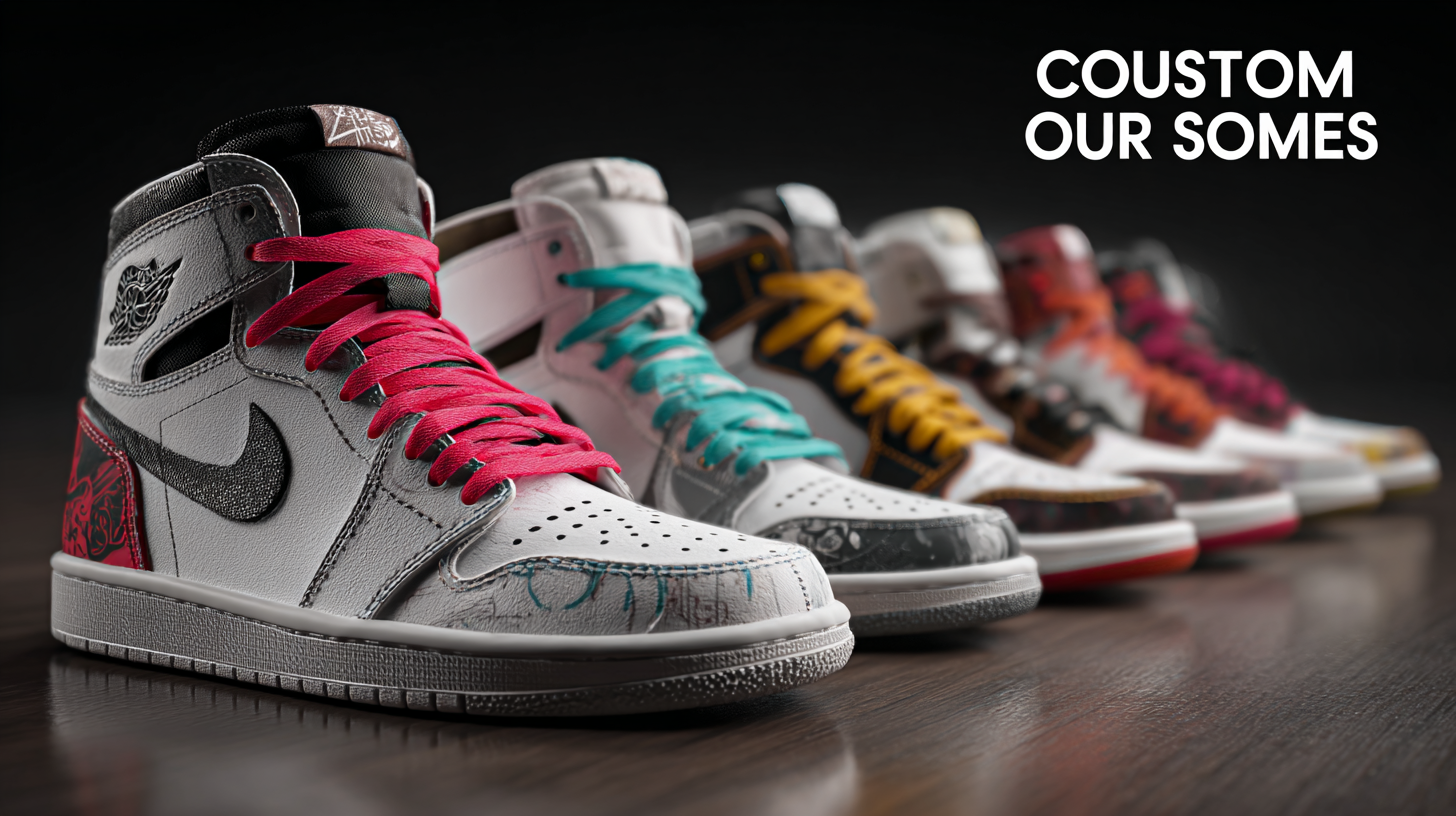
In the dynamic and competitive landscape of the global sneaker market, sourcing the best Custom Made Sneakers requires a strategic approach that carefully balances quality, design, and market demands. As the trend of personalization surges, consumers are increasingly seeking footwear that reflects their individual styles and preferences. This blog delves into the top strategies for effectively navigating the complexities of sourcing these unique products. From understanding industry-specific import and export certifications to leveraging innovative design collaborations, we will explore the essential elements that contribute to successful sourcing. By adopting these strategies, businesses can not only enhance their product offerings but also establish a distinct competitive edge in an ever-evolving market.

In today’s competitive global market, understanding your unique design needs is crucial for sourcing the best custom-made sneakers. A recent report by Allied Market Research indicated that the global sneaker market is projected to reach $120 billion by 2026, with a rising demand for personalized footwear. This shift emphasizes the importance of identifying what sets your design apart. Are you seeking functional performance, aesthetic appeal, or sustainable materials? These factors will shape your approach in navigating the crowded sneaker landscape.
Identifying your unique design needs starts with conducting thorough market research. Companies like Statista highlight that 62% of consumers prefer brands that offer customized products. Engaging with potential customers through surveys or focus groups can unveil preferences that drive your design choices. Emphasizing elements like color schemes, patterns, or even integrating smart technology into your designs can create a product that resonates with your target audience. By clearly defining your vision, you not only cater to market demands but also create a compelling narrative that attracts partnerships with manufacturers skilled in crafting bespoke sneakers.
When researching potential manufacturers for custom-made sneakers, it's essential to consider several key factors that can significantly influence your success in a competitive global market. According to a 2022 report by Grand View Research, the global athletic footwear market is projected to reach $131.78 billion by 2028, growing at a CAGR of 4.1%. This statistic underscores the importance of selecting a manufacturer who not only understands the latest trends but also possesses the technical capabilities to produce high-quality products efficiently.
One critical factor to consider is the manufacturer's production capacity and technology. A survey conducted by Statista revealed that 52% of consumers prioritize quality over price when purchasing footwear. This places a premium on manufacturers who invest in advanced machinery and skilled labor. Additionally, logistical considerations such as lead times and shipping capabilities play a pivotal role in ensuring timely delivery in a fast-paced environment. Moreover, potential partners should be evaluated on their sustainability practices, as 66% of global consumers are willing to pay more for sustainable brands, according to a Nielsen report. This shift towards eco-friendly products necessitates that manufacturers have robust practices in place to meet consumer expectations.

When sourcing custom-made sneakers in today's competitive global market, evaluating manufacturing capabilities is critical. According to a report by Smithers Pira, the global footwear market is projected to reach $320 billion by 2024, driven significantly by advancements in manufacturing technology and quality control measures. Brands need to partner with manufacturers that not only employ state-of-the-art machinery but also embrace automation and data analytics to enhance production efficiency and reduce lead times.
Quality control is another essential aspect in the sneaker manufacturing process. Research from Technavio indicates that the increasing demand for durable and high-performance footwear will compel manufacturers to integrate stringent quality control systems. Implementing technologies like RFID tracking and real-time quality assessment can minimize defects and ensure consistency across batches. Brands should prioritize manufacturers that utilize these technologies, as they can significantly affect the end product's quality and customer satisfaction, ultimately leading to a stronger market presence in this ever-evolving industry.
| Region | Technology Used | Quality Control Standards | Production Capacity (units/month) | Lead Time (weeks) |
|---|---|---|---|---|
| Asia | 3D Printing, CAD Design | ISO 9001 | 100,000 | 4-6 |
| North America | Automated Stitching, Laser Cutting | ASTM F1970 | 50,000 | 6-8 |
| Europe | Virtual Prototyping, Sustainable Materials | OEKO-TEX Standard 100 | 75,000 | 5-7 |
| South America | Robotic Assembly, Eco-Friendly Processes | ISO 14001 | 30,000 | 8-10 |
Building strong relationships with manufacturers is essential for businesses looking to source high-quality custom-made sneakers in today's competitive global market. According to a report by Allied Market Research, the global sneaker market is projected to reach $112.8 billion by 2025, highlighting the intense competition among brands. Establishing solid partnerships with manufacturers not only enhances product quality but also ensures focus on sustainability and ethical production practices, which are increasingly important to consumers. When brands and manufacturers work hand-in-hand, they can innovate together, leading to unique designs that stand out in a crowded marketplace.

Effective collaboration allows for better communication regarding quality standards, design specifications, and delivery timelines. An industry survey conducted by Statista found that 67% of companies cited poor supplier relationships as a major obstacle in their supply chain management. By investing time in developing trust and transparency with manufacturers, companies can streamline their processes, reduce production delays, and mitigate risks associated with miscommunication. This proactive approach not only fosters loyalty among manufacturers but also contributes to long-term success in delivering superior products to eager consumers.
When venturing into the competitive global market for custom-made sneakers, understanding how to navigate cost and timelines is crucial for success. According to a 2023 report by Statista, the global sports footwear market is projected to reach $102.3 billion by 2030, with custom products taking a significant share of that growth. In this vibrant landscape, brands must prioritize efficient sourcing and production processes to remain competitive.
To reduce production timelines, companies increasingly turn to local manufacturing hubs. A study from McKinsey highlights that localized production can cut lead times by up to 50%, allowing brands to respond swiftly to market demands and trends. Furthermore, leveraging technology, including automated production techniques and digital design tools, enhances accuracy and significantly minimizes costs. This shift not only streamlines the workflow but also allows for immediate adjustments based on consumer feedback, ultimately translating to higher customer satisfaction while maintaining financial viability.
By strategically addressing these factors, brands can create a streamlined process that not only meets the rising consumer demand for custom sneakers but also sustains profitability amidst fierce competition.
This chart illustrates the estimated average sourcing times and costs associated with various strategies for custom sneaker production. The data reflects a comparative analysis of different approaches in a competitive global market.
